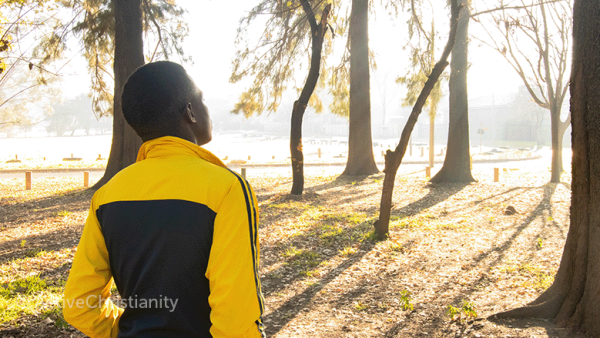God wants to draw us closer to Himself
All of us have boundaries in our lives. Boundaries are our circumstances, where we live, our health, our finances, and so on. These boundaries or circumstances can change during our lifetime. Sometimes we can change them ourselves and at other times circumstances outside of our control can change them. We can waste a great part of our lives wishing our boundaries were different - when it is actually far more important how we live within them.
Paul said in Acts 17:26-27 (NLT): “From one man he created all the nations throughout the whole earth. He decided beforehand when they should rise and fall, and he determined their boundaries. His purpose was for the nations to seek after God and perhaps feel their way toward him and find him—though he is not far from any one of us.” So in the end, it is God who controls the boundaries in our lives and His goal in doing so is to draw us closer to Himself.
What Job learned when his boundaries changed
Job’s boundaries (circumstances) changed a lot during his life. With God’s permission, Satan destroyed all Job’s possessions and killed his 10 children in one day. (See Job 1.) Amazingly, this was Job’s response: “When Job heard this, he got up and tore his robe and shaved his head to show how sad he was. Then he bowed down to the ground to worship God. He said: ‘I was naked when I was born, and I will be naked when I die. The Lord gave these things to me, and he has taken them away. Praise the name of the Lord.’ In all this Job did not sin or blame God.” Job 1:20-22 (NCV).
Job’s boundaries then became even smaller when God gave Satan permission to touch his body: “Satan … caused painful sores to break out all over Job's body-from head to toe.” Job 2:7 (CEV).
Job’s wife and friends were certain that Job had displeased the Lord, but Job understood to keep himself even closer to God in this time, so that afterwards he could say: “I heard about you from others; now I have seen you with my own eyes. That's why I hate myself and sit here in dust and ashes to show my sorrow.” Job 42:5-6 (CEV). He made use of these changes in his boundaries to get an even stronger relationship with God.
An ever-deepening relationship with God
This choice to keep themselves even closer to God in the trials of life, and in the changed boundaries these trials can bring, is something the heroes of faith like Noah, Abraham, Moses etc have done throughout the ages. (See Hebrews 11.) They gladly accepted these often unpleasant changes so that they did experience “… that He rewards those who earnestly seek him.” Hebrews 11:6 (NIV).
Paul also wrote how he learned to take such situations in his life: “I know how to live when I am poor, and I know how to live when I have plenty. I have learned the secret of being happy at any time in everything that happens, when I have enough to eat and when I go hungry, when I have more than I need and when I do not have enough. I can do all things through Christ, because He gives me strength.” Philippians 4:12-13 (NCV).
When we look at our boundaries and circumstances in this way, we will experience what Jesus said: “And this is eternal life: that people know you, the only true God, and that they know Jesus Christ, the One you sent.” John 17:3 (NCV). Life becomes interesting when we live our lives together with God, who uses everything we go through to bring us in an ever-deepening relationship with Him and His Son, which leads us to becoming more like Jesus. (Romans 8:28-29.)
We will no longer waste time hoping for changes in earthly matters that can never really bring true satisfaction, but we will rather experience a heavenly life that also means true fellowship with others that have this same goal.




